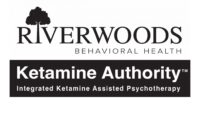
Have we underestimated the power of ketamine in the battle against trauma? As we explore the transformative potential of this treatment, it's crucial to understand not just the science behind it, but also the real-world applications that could change lives.
From the intricacies of ketamine-assisted therapy to tailoring the journey for personal healing, our guide aims to demystify the process and highlight the path toward resilience.
Join us as we navigate the nuances of evaluating progress and outcomes, offering a glimpse into a future where trauma recovery is not just a possibility, but a reality.
Understanding Ketamine's Role
Ketamine, originally known as a powerful anesthetic, has emerged as a groundbreaking treatment in the realm of trauma recovery. We've seen this drug transition from its primary use in surgeries to a pivotal role in mental health care, especially for individuals grappling with the effects of trauma. Its ability to provide rapid relief from depressive symptoms and PTSD is nothing short of revolutionary, offering hope where traditional treatments have faltered.
We're witnessing a paradigm shift in how we approach trauma therapy. Ketamine's unique properties facilitate a mental environment where patients can access and process traumatic memories without the overwhelming emotions usually associated with them. This doesn't just open the door to healing; it's like it's knocking down walls that seemed impenetrable.
Our understanding of ketamine's role in trauma recovery has come a long way. It's not just about symptom relief; it's about fundamentally altering the way we heal from trauma. We're excited by the potential ketamine has to reshape the landscape of mental health care, providing a beacon of hope for those who've felt trapped in their own minds. As we continue to explore and refine its use, we're optimistic about the future of trauma therapy.
The Process of Ketamine-Assisted Therapy
To understand the transformative effects of ketamine-assisted therapy, it's essential to delve into its procedural intricacies.
Initially, we engage in comprehensive assessments to ensure suitability for this treatment. This involves medical and psychological evaluations to identify any potential risks or contraindications. We're not just looking for eligibility, but also for a clear understanding of each patient's unique needs and trauma history.
Once cleared for therapy, we set up a series of sessions. Each session is closely monitored by trained professionals who guide patients through their experiences. The environment is designed to be safe, comfortable, and conducive to healing. We emphasize creating a therapeutic space where patients can explore their thoughts and emotions under the influence of ketamine without fear.
During the sessions, patients might experience a range of sensations, from disassociation to heightened emotional awareness. It's a journey that varies from person to person. We're there to facilitate this journey, helping patients process their experiences and integrate them into their path to recovery.
It's crucial to note that the success of ketamine-assisted therapy doesn't solely rest on the drug's effects. The integration sessions that follow are where the real work happens. Here, we help patients make sense of their experiences, linking them to their recovery goals.
Building Resilience With Ketamine
We're discovering that ketamine therapy offers a powerful tool in building emotional resilience, essential for long-term trauma recovery. As we delve deeper into the therapeutic effects of ketamine, it's becoming clear that this treatment not only helps alleviate the symptoms of trauma but also strengthens our ability to cope with future stressors. By rewiring the brain's response to stress, ketamine encourages a more adaptable and resilient mindset.
Our exploration into ketamine's impact on resilience reveals its potential to reset the brain's fear responses. This is particularly beneficial for individuals who've been stuck in a cycle of hyperarousal or avoidance due to past trauma. Ketamine's unique ability to foster connections between brain regions disrupted by trauma enables us to approach life's challenges with a renewed sense of strength and flexibility.
Furthermore, we're finding that ketamine therapy can significantly reduce the overwhelming feelings of despair and hopelessness often associated with traumatic experiences. This reduction not only aids in the immediate healing process but also contributes to the development of a more resilient outlook on life. By addressing the root causes of trauma and enhancing our emotional resilience, ketamine therapy is proving to be a vital component in the journey toward recovery.
Personalizing Your Healing Journey
Every individual's path to recovery is unique, demanding a tailored approach to ketamine therapy that aligns with their specific needs and experiences. We recognize that what works for one person mightn't work for another, underscoring the importance of personalizing each healing journey. As we embark on this path, we consider various factors, including our past traumas, current mental state, and our overall goals for recovery.
We collaborate closely with healthcare professionals to craft a treatment plan that's just right for us. This could mean adjusting the dosage, exploring different methods of administration, or incorporating additional therapies that complement the effects of ketamine. We're not just passive recipients of care; we're active participants, sharing our insights and feedback to ensure the therapy meets our unique needs.
It's also vital for us to create a supportive environment around our therapy sessions. This means setting aside time for rest, seeking the support of loved ones, and engaging in activities that promote mental wellness. By doing so, we enhance the healing effects of ketamine, making our journey towards recovery as effective as it can be.
Evaluating Progress and Outcomes
After personalizing our healing journey, it's crucial to assess how well the therapy is working for us. We're diving deep into evaluating our progress and outcomes after incorporating ketamine into our trauma recovery process. It's about looking beyond the immediate effects and understanding the long-term benefits and any potential setbacks.
We start by setting clear, measurable goals at the onset of treatment. Are we experiencing fewer symptoms of trauma? Is our overall mood improving? These questions guide our evaluation, helping us see the tangible changes in our lives.
Regular check-ins with our healthcare provider are essential. They offer an expert perspective on our progress and adjust the treatment plan as needed. We're learning to be patient, as true healing doesn't happen overnight. It's a journey, with each step forward bringing us closer to our goal of recovery.
Feedback from our support system—friends, family, or support groups—also plays a critical role. They often notice changes in us that we might overlook. Their observations help us gauge the impact of ketamine therapy on our daily life.
Ultimately, we're committed to reassessing our progress regularly, ensuring the path we're on aligns with our healing goals. It's a dynamic process, but we're in it together, striving for a healthier, happier life.
Frequently Asked Questions
How Do Legal Regulations Vary for Ketamine Use in Therapy Across Different Countries?
We've noticed that the rules governing ketamine use in therapy aren't the same everywhere. In some countries, it's tightly regulated, requiring specific licenses for medical professionals. Others have more lenient approaches, allowing broader use in therapeutic settings.
It's fascinating to see how these legal frameworks impact access and treatment options globally. We're always keeping an eye out for updates, as changes could open up new possibilities for therapy practices worldwide.
Can Ketamine Therapy Interact With Other Medications or Supplements I Am Currently Taking?
We're wondering if ketamine therapy might mix badly with other meds or supplements we're already taking. It's crucial to get this sorted because we don't want any unexpected side effects throwing us off course.
We've heard that it's important to discuss all the stuff we're currently on with our healthcare provider before starting treatment, to make sure everything's safe and won't interfere with the therapy's effectiveness.
What Are the Potential Long-Term Effects of Using Ketamine for Trauma Recovery?
We're curious about the long-term effects of using ketamine for trauma recovery. It's important for us to understand what we're getting into before making a decision.
While it offers hope, we've read that there could be concerns like dependency, cognitive changes, or bladder issues. We're looking for a balance, aiming to heal without compromising our future well-being.
It's crucial we weigh the benefits against the potential risks carefully.
How Does One's Diet or Lifestyle Affect the Effectiveness of Ketamine-Assisted Therapy?
We're curious about how our eating habits or lifestyle choices might impact the success of treatments like ketamine-assisted therapy. It turns out, what we eat and how we live our lives can significantly affect the treatment's effectiveness.
Healthy diets and active lifestyles not only improve our overall well-being but can also enhance the therapeutic benefits of ketamine, making it a more potent tool in our journey toward recovery.
Are There Any Specific Age Restrictions or Considerations for Ketamine Therapy in Treating Trauma?
We've been wondering if there are age limits or special considerations when it comes to using ketamine therapy for treating trauma.
It turns out, yes, there are specific age restrictions and considerations that need to be taken into account. Doctors often assess these on a case-by-case basis, ensuring the treatment's suitability and safety for each individual, regardless of their age.
It's all about finding the right approach for each person's unique situation.
Conclusion
In wrapping up, we've seen how ketamine can be a game-changer in healing from trauma. Through ketamine-assisted therapy, we're not just undergoing treatment; we're actively rebuilding our resilience and personalizing our recovery journey.
It's crucial to keep track of our progress and outcomes, ensuring the therapy aligns with our healing goals. As we move forward, embracing this innovative approach can open new pathways to healing that we mightn't have considered before.
Let's keep exploring and healing together.

